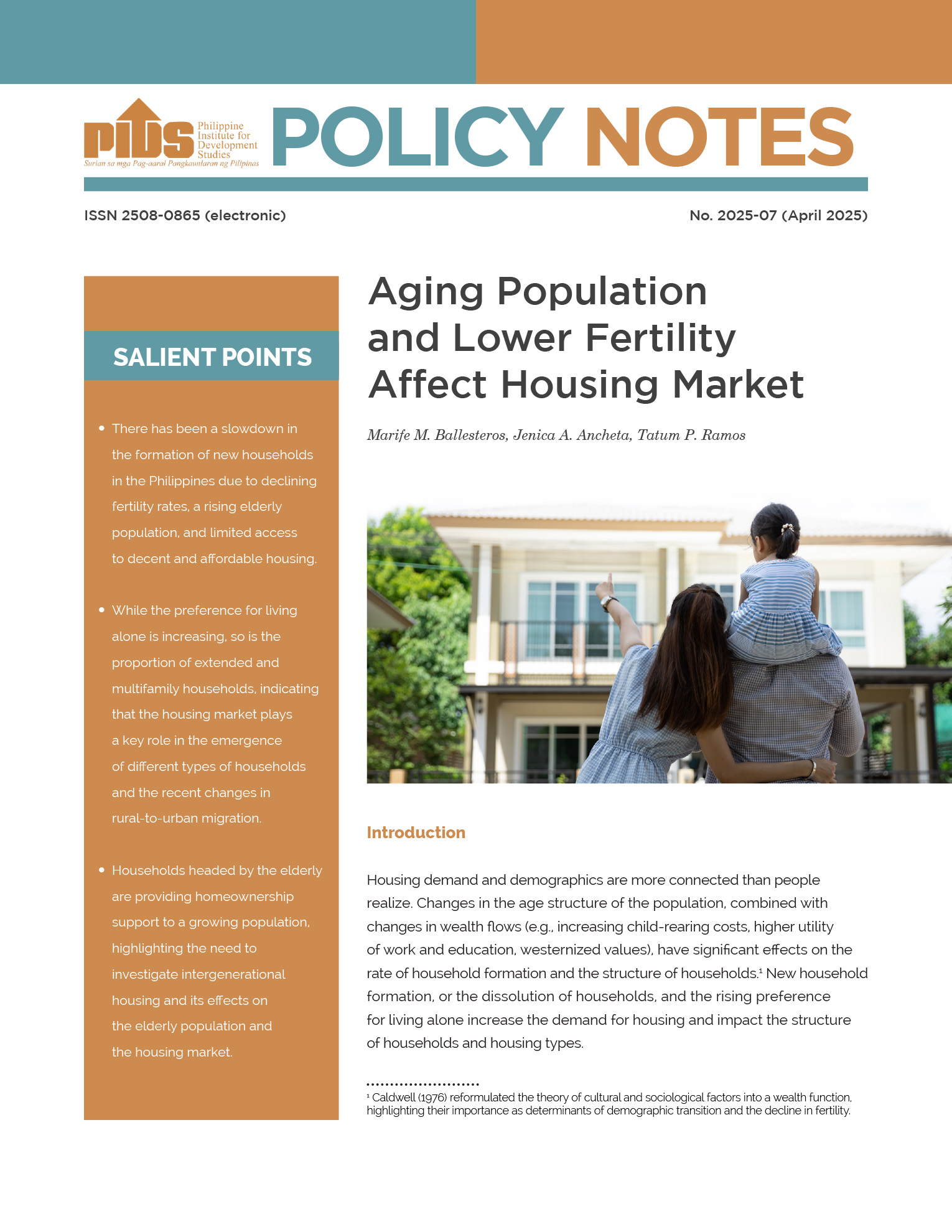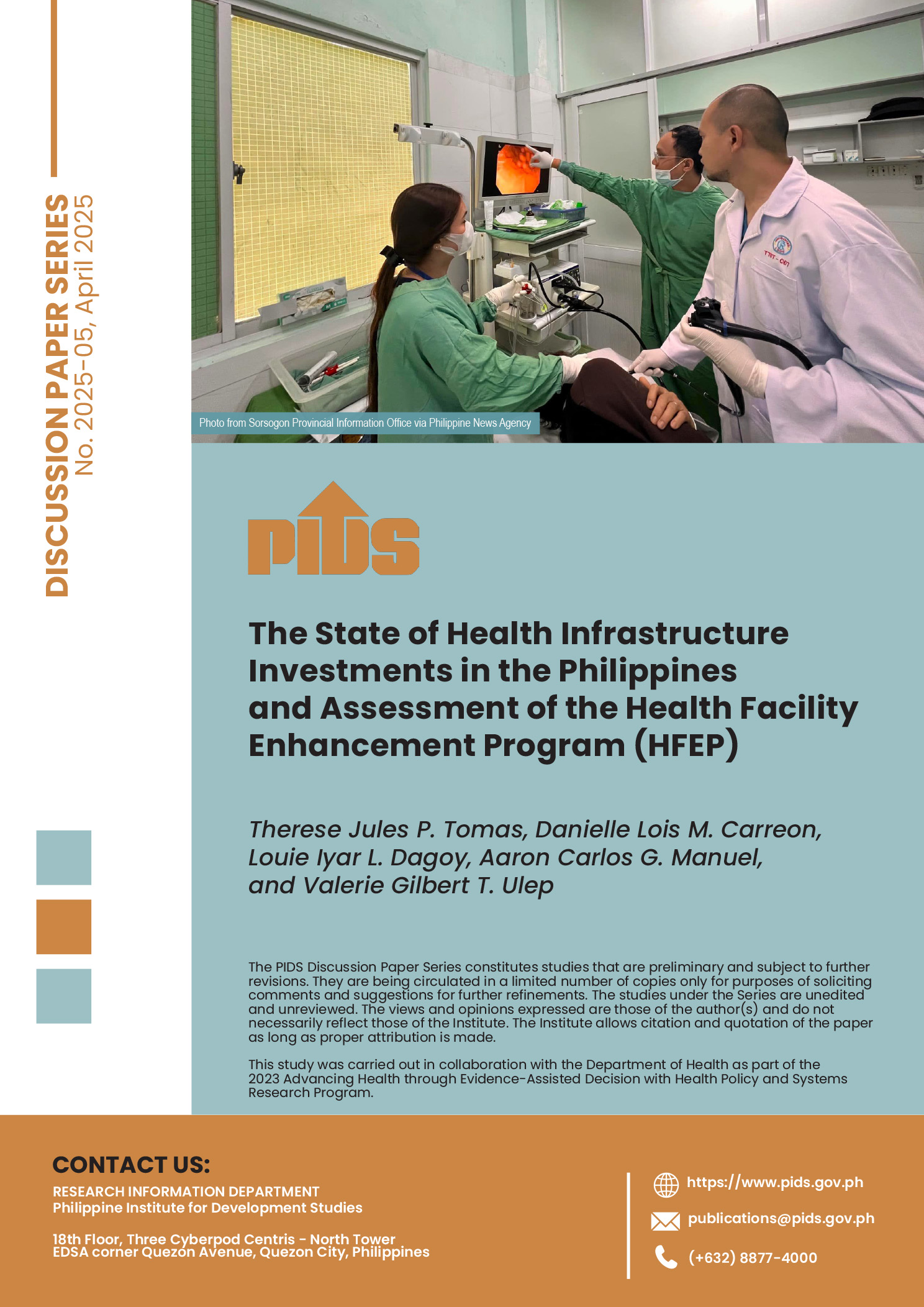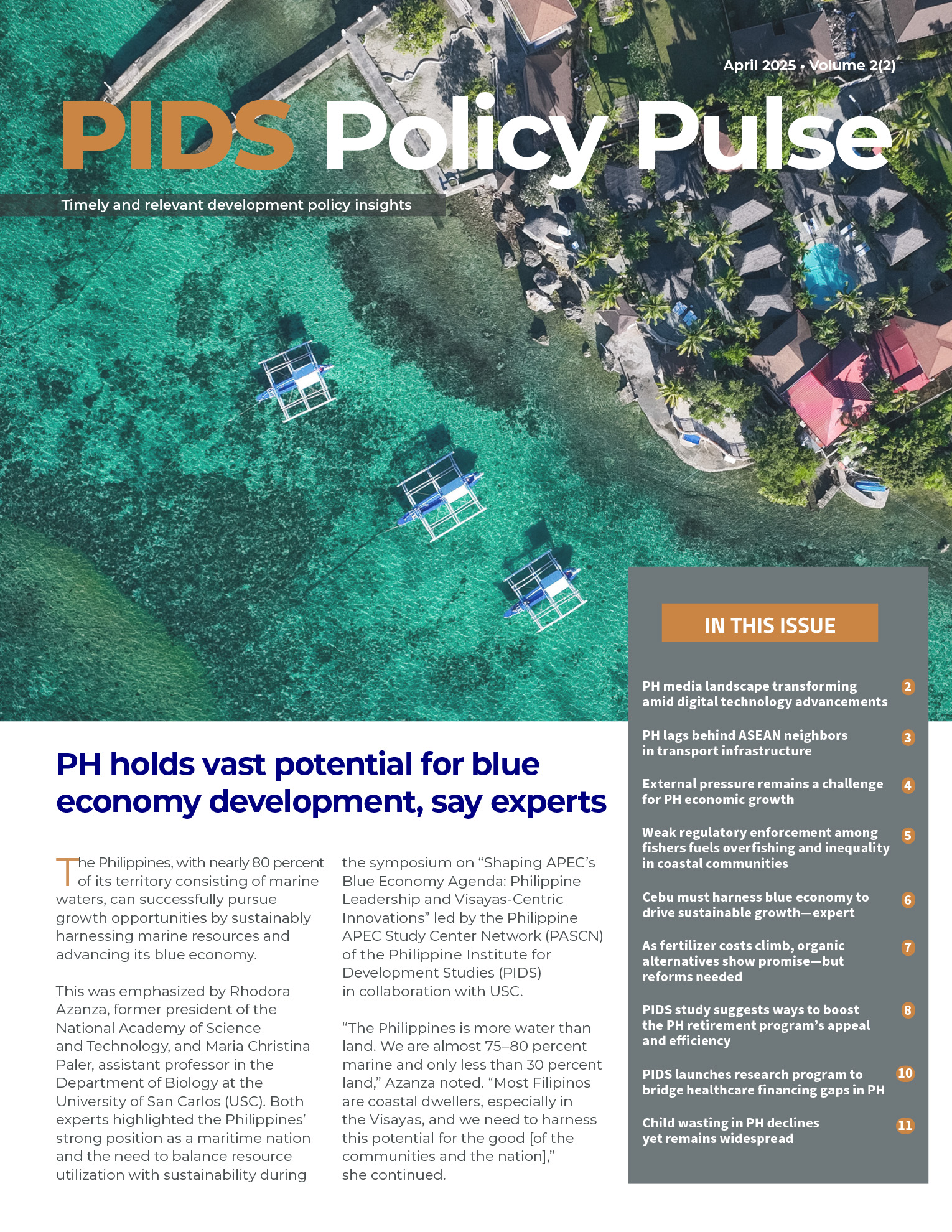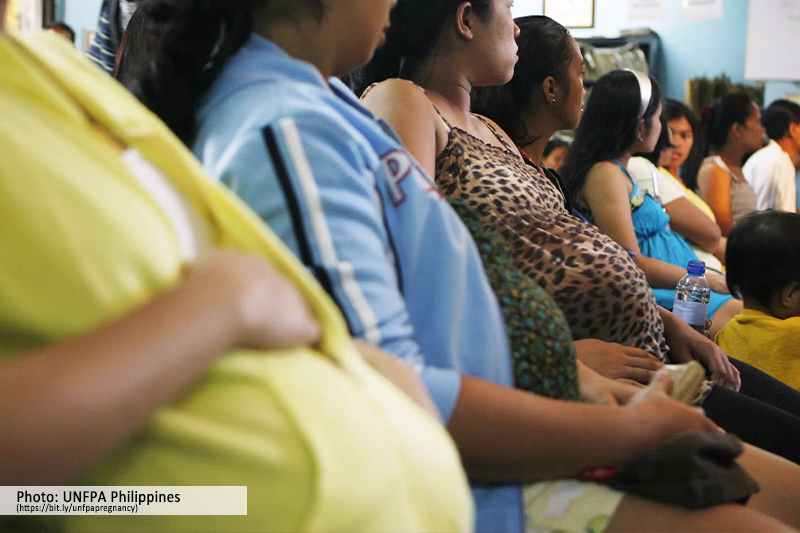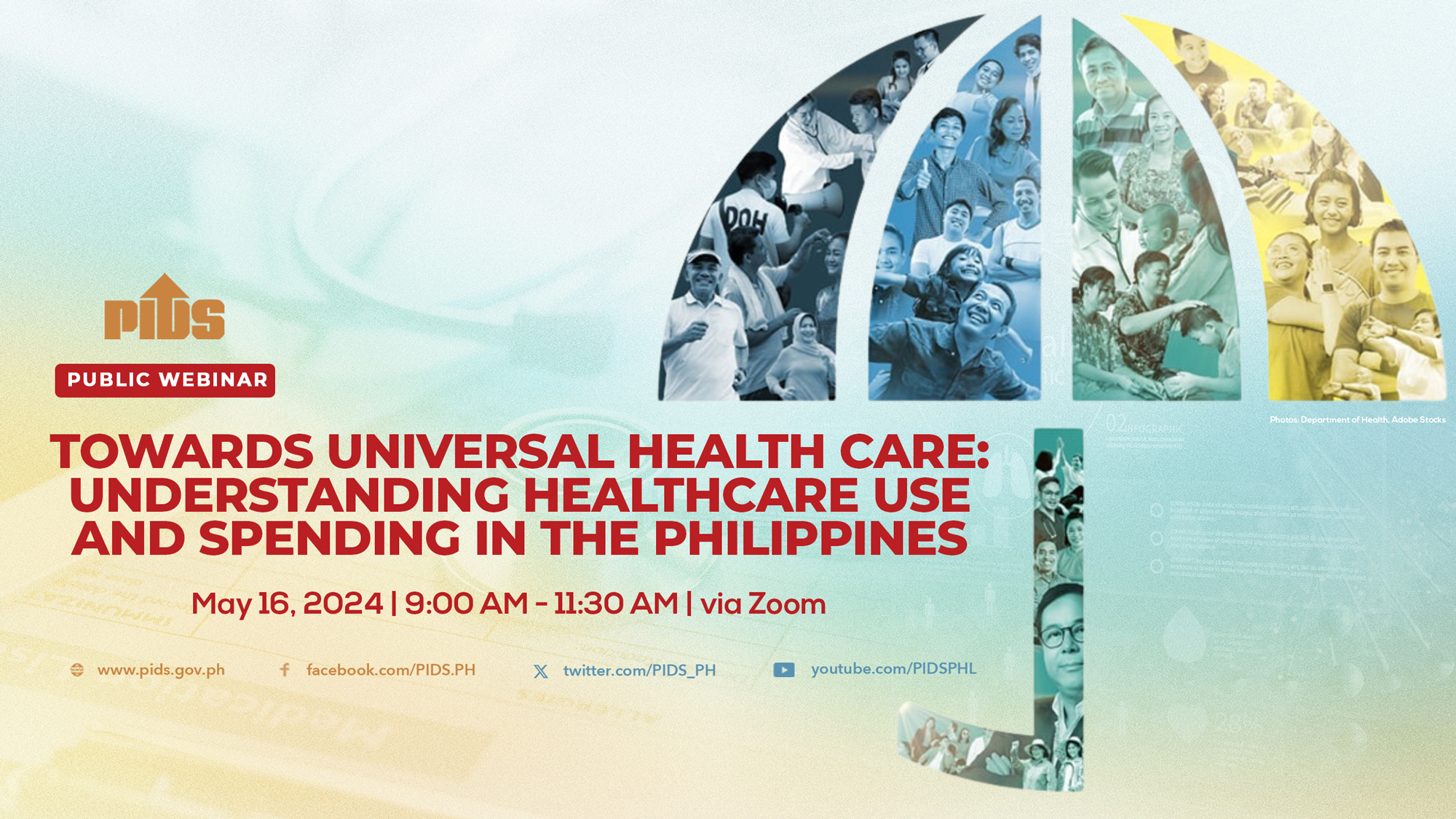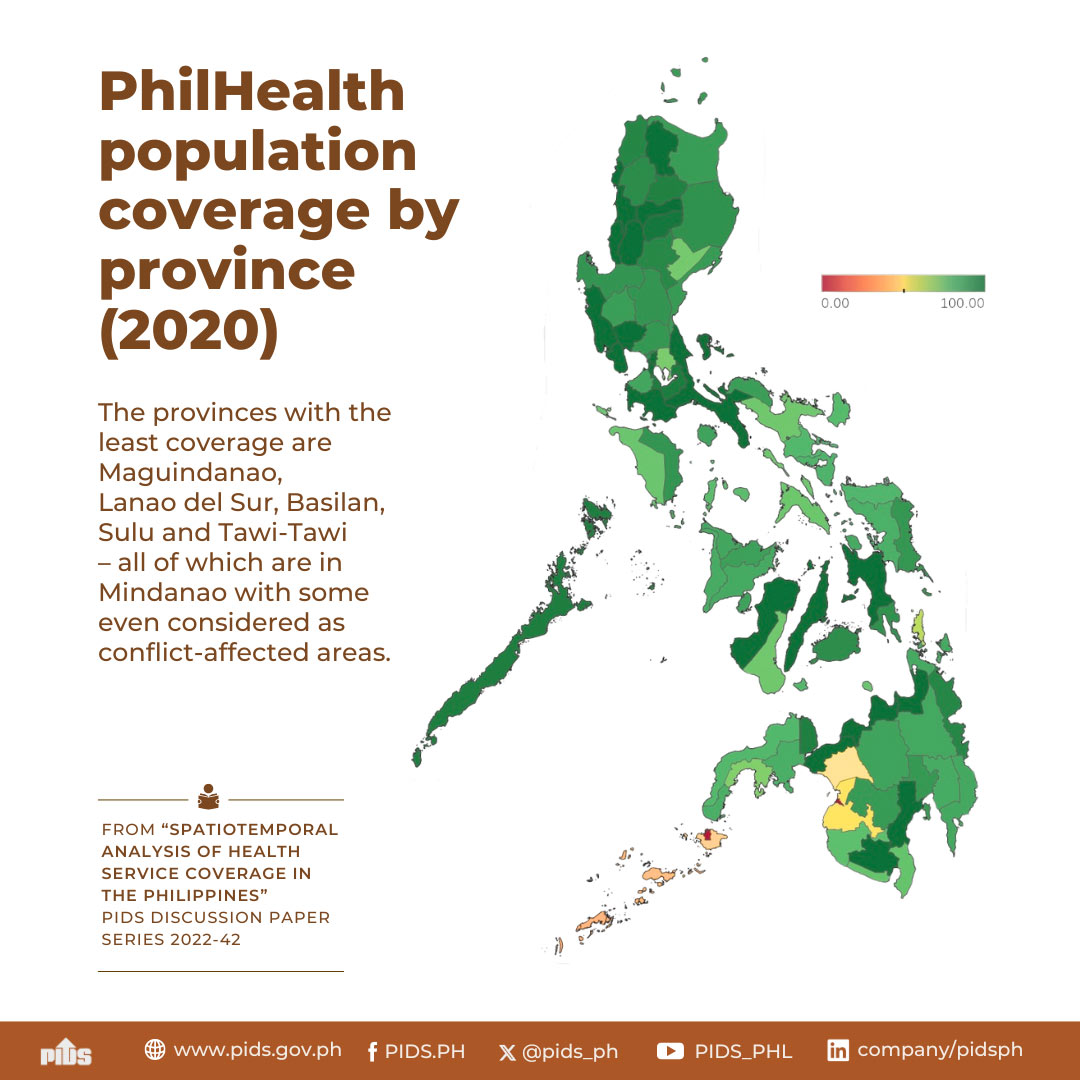THE Philippines’ emergence from lower middle-income status will hinge on investment in healthcare and energy, as well as sound fiscal management, former government officials said.
“How do we navigate the post-pandemic economy and avoid the lower middle-income trap and gear for a bright future? One is stabilization and the need for strong public health systems and in the long run, industrialize and engage in energy development and come up with affordable electricity rates,” former National Economic and Development Authority (NEDA) Director-General Dante B. Canlas said during a forum at the University of the Philippines Diliman last week.
The Philippines is currently a lower middle-income economy, according to the World Bank.
Philippine gross national income (GNI) per capita increased 11.3% to $3,950 in 2022. The World Bank bracket for lower middle-income economies is $1,136-$4,465.
The government hopes to reach upper middle-income status by 2025.
To reach upper middle-income status, Mr. Canlas, the chief economic planner for the Arroyo administration, said the government also needs to manage deficit financing and public debt prudently.
“Get rid of wasteful spending in the budget and raise current taxes that are easy to administer and progressive,” he said.
The government is aiming to bring down the deficit-to-gross domestic product (GDP) to 3% by 2028. It also hopes to reduce the debt-to-GDP ratio to below 60% by 2025.
He also noted the need to force a budget accord with Congress beyond one year.
“All taxes emanate from the House. If you want to reduce the deficit to 3%, which many people believe is safe, as you do it, it’s got to be (done responsibly). We have to protect core Filipino values: health, education, and make sure we can modernize and expand infrastructure. Those are all impeding economic growth,” he added.
Mr. Canlas said an approach that relies on “infinite” borrowing is “not sustainable.”
The government should also focus on improving public health systems, he said.
“It’s important to have investments in health or population management. We know the impacts of COVID-19 but there could be other communicable diseases that could (come about) that increase morbidity and absenteeism in the workplace,” he said.
Achieving affordable energy will also be crucial to escaping the “lower middle-income trap.”
“We have to accelerate the cost competitiveness of renewables… if we hope to replace fossil fuels in generating electricity and transport. We need strategies to transition from coal to renewables,” he added.
The economy must also be transformed through industrialization.
“First, raising productivity in all sectors: agriculture, industry, and services. People think it’s just building the heavy industries. We have to be careful in choosing the industries to support,” Mr. Canlas added.
The government must also address income inequality. “It’s been widening. There are several studies that income inequality is very harmful to growth. You cannot build a modern society if it gets unequal over the years,” Mr. Canlas said.
Mr. Canlas also said there is a need to minimize youth unemployment through skill acquisition programs. “Unless we rectify that, give them new skills, what will happen is the young and unemployed today will become adults and unemployed tomorrow.”
Former Philippine Institute for Development Studies President Josef T. Yap also noted the long-term trend of low investment levels.
“For the better part of three decades we have (had) a lower investment-to-GDP ratio. Investment is important for future economic growth. We were in the backseat with regard to investment. Among ASEAN+3, only the Philippines and Cambodia have never reached the 30% threshold (for investment) between 1960-2019,” he said.
Former Bangko Sentral ng Pilipinas Deputy Governor Diwa C. Guinigundo emphasized the role of institutions in boosting growth.
“(We) need to ensure we don’t ignore the imperative to reduce poverty and income inequality. It’s crucial we avoid corruption. Governance is not growth positive,” he said.
“We cannot overemphasize good governance… it plays a very important role in not just improving the investment climate but also promoting overall sustainable growth,” he added.
Mr. Guinigundo also noted that the country was not able to take advantage of globalization. He recommended joining global value chains to accelerate industrialization.
Former NEDA Director-General and former Finance Secretary Jesus P. Estanislao said we have to create “competitive, highly productive enterprises whose internal value chains are best in class.”
Mr. Estanislao said the government must implement a supervisory institution that will “be committed to good governance and making the Philippines more competitive as possible.”
“If we could have continued with a greater commitment to industrial, corporate, government competitiveness, (we would have been) among the top 30 countries in the world, but there is work to do,” he added.

